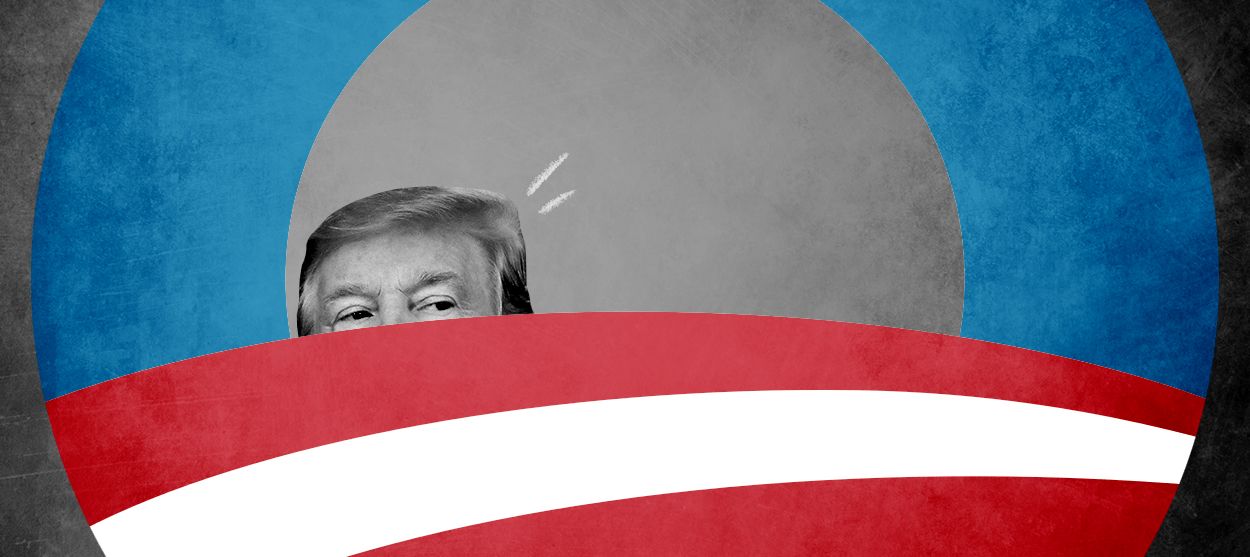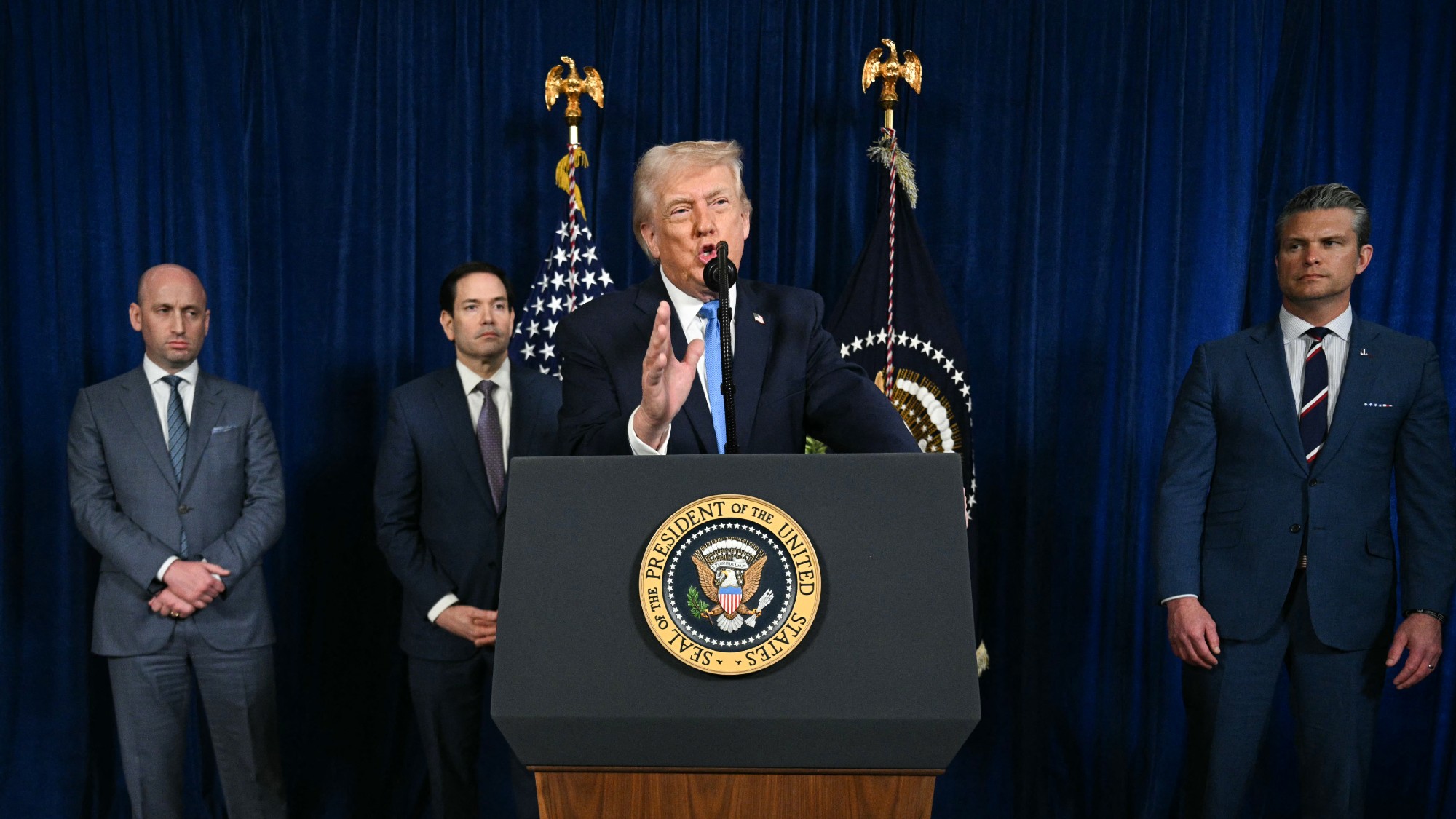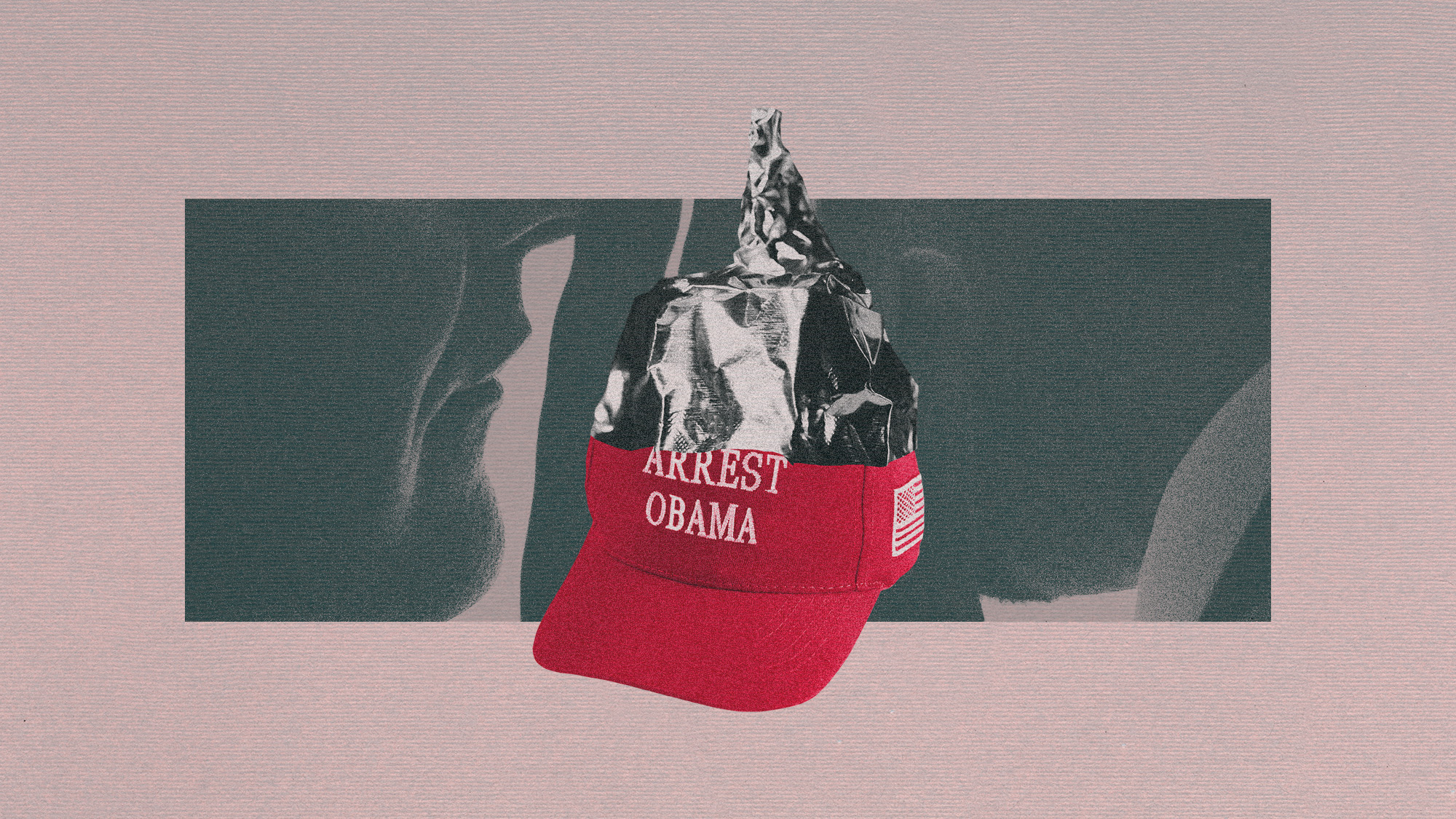Trump in 2020 is Obama in 2012
Obama surprised many observers, including some in his own party, by holding on to his presidency. Could Trump do the same?


A free daily email with the biggest news stories of the day – and the best features from TheWeek.com
You are now subscribed
Your newsletter sign-up was successful
Why would anyone vote to re-elect President Trump? The argument is at once difficult to make and entirely straightforward. Certainly his record in office — a tax cut no one in particular asked for, a modestly improved version of NAFTA that has won some support from organized labor, not invading Iran or overthrowing the Syrian government, a handful of economic statistics that were meaningful in January — looks thin in comparison with his rhetoric on the campaign trail in 2020. Perhaps his most significant achievement in office — the sentencing reform bill passed at the behest of Mr. and Mrs. Kanye West — is one for which he is likely to receive no credit from partisans on either side.
But one sometimes wonders what exactly Trump's supporters expected from him. It is hard to imagine that anyone really thought he would single-handedly reverse the decline in manufacturing or save Middle America from the opioid crisis. This is to say nothing of China, a problem so large that even beginning to solve it would require something like the unanimous bipartisan consensus that existed around the Cold War.
I think that in the case of a large number — certainly not all, but a great many — of the president's fans, my utilitarian framing of the question gets things backwards. Voting for Trump in 2016 was not a kind of earnest money payment for services that supporters expected to see rendered at some point during the next four years. It was an existential decision, a carnivalesque middle-finger gesture. Trump was not being elected in order to do anything: The fact of his being in office at all and what it represented to these voters' enemies, real or perceived, was somehow an affirmation of their lives.
The Week
Escape your echo chamber. Get the facts behind the news, plus analysis from multiple perspectives.

Sign up for The Week's Free Newsletters
From our morning news briefing to a weekly Good News Newsletter, get the best of The Week delivered directly to your inbox.
From our morning news briefing to a weekly Good News Newsletter, get the best of The Week delivered directly to your inbox.
Which is why I think that if we are looking for a framework in which to discuss the president's chances of re-election, a much better point of reference than 2016 is 2012, when Barack Obama surprised many observers, including some in his own party, by holding on to his presidency.
Many of the things Trump in 2020 and Obama in 2012 have in common are not unique. Like both of these men, Bill Clinton lost control of the House of Representatives two years into his presidency. But Clinton's response was to take up much of the new Republican-controlled House's agenda, signing welfare "reform," crime bills, and the Defense of Marriage Act into law. For this acquiescence his reward would eventually be impeachment, but not before he managed to win a second term.
Meanwhile, after campaigning on hope and change and the fundamental transformation of American life, Obama found himself the inheritor of two major wars and an economic crisis not of his making and managed to pass a single major piece of non-emergency legislation, the Affordable Care Act, before his party lost the House in 2014. After this point his was effectively a lame-duck presidency, one in which the ordinary business of government gave way to an endless series of meta-conflicts over things like the extent to which Cabinet officials are exempt from federal subpoenas, which culminated in shambolic hearings on Fast and Furious, Benghazi, and the IRS's treatment of conservative nonprofit groups. The only real achievements of the Obama era came either by way of executive unilaterialism — DACA — or else were gift-wrapped from the Supreme Court.
This is more or less exactly the trajectory that Trump's presidency has followed so far. After securing the tax bill that is the Trumpian equivalent of ObamaCare just before the Christmas recess in 2017, he has found his presidency defined by the use of executive orders and by pitched battles with the opposition party, which culminated in his House impeachment and eventual Senate acquittal earlier this year.
A free daily email with the biggest news stories of the day – and the best features from TheWeek.com
What does this mean for his chances of re-election? On paper there was every indication in 2012 that Obama was a weak candidate. He had almost nothing to show for his term in office, least of all the Affordable Care Act, which was then mainly associated with the disastrous rollout of the online exchanges rather than with the pragmatic (and universally popular) expansion of Medicaid. There were questions, too, about why someone who had campaigned so effectively against "dumb wars" had decided to invade Libya at the behest of his secretary of state. Obama's approval rating was not significantly higher than Trump's is now. The hopeful rhetoric of his first campaign had given way to complaints about the cynicism of his opponents.
Supporting Obama in 2008 had been a — to use a phrase much repeated at the time — "once in a lifetime chance" to affirm the inchoate value of "hope" and "change" and, far more significant, the triumph of half a century of progress in American race relations by electing our first Black president. Would the same pitch work again?
We all know how things went down. Obama's turnout operation was once again successful, especially with minority voters. Instead it was the opposition party that struggled to get voters to the polls on behalf of one of the least inspiring major party presidential nominees in recent American history.
In 2012 it was not the incumbent president's record of success in office but a combination of his personal appeal and of widespread indifference (not least among the party's activist base) toward the other candidate that allowed him to win re-election. Eight years later Trump's chances of a second term depend not upon his supporters' assessment of his achievements, such as they are, but with Democrats' enthusiasm for their own nominee. In November we will learn just how similar Trump and Obama's presidencies really are.
Want more essential commentary and analysis like this delivered straight to your inbox? Sign up for The Week's "Today's best articles" newsletter here.
Matthew Walther is a national correspondent at The Week. His work has also appeared in First Things, The Spectator of London, The Catholic Herald, National Review, and other publications. He is currently writing a biography of the Rev. Montague Summers. He is also a Robert Novak Journalism Fellow.
-
 Local elections 2026: where are they and who is expected to win?
Local elections 2026: where are they and who is expected to win?The Explainer Labour is braced for heavy losses and U-turn on postponing some council elections hasn’t helped the party’s prospects
-
 6 of the world’s most accessible destinations
6 of the world’s most accessible destinationsThe Week Recommends Experience all of Berlin, Singapore and Sydney
-
 How the FCC’s ‘equal time’ rule works
How the FCC’s ‘equal time’ rule worksIn the Spotlight The law is at the heart of the Colbert-CBS conflict
-
 The billionaires’ wealth tax: a catastrophe for California?
The billionaires’ wealth tax: a catastrophe for California?Talking Point Peter Thiel and Larry Page preparing to change state residency
-
 What is the Donroe Doctrine?
What is the Donroe Doctrine?The Explainer Donald Trump has taken a 19th century US foreign policy and turbocharged it
-
 Bari Weiss’ ‘60 Minutes’ scandal is about more than one report
Bari Weiss’ ‘60 Minutes’ scandal is about more than one reportIN THE SPOTLIGHT By blocking an approved segment on a controversial prison holding US deportees in El Salvador, the editor-in-chief of CBS News has become the main story
-
 Has Zohran Mamdani shown the Democrats how to win again?
Has Zohran Mamdani shown the Democrats how to win again?Today’s Big Question New York City mayoral election touted as victory for left-wing populists but moderate centrist wins elsewhere present more complex path for Democratic Party
-
 ‘This estrangement from death has beget euphemisms’
‘This estrangement from death has beget euphemisms’Instant Opinion Opinion, comment and editorials of the day
-
 Millions turn out for anti-Trump ‘No Kings’ rallies
Millions turn out for anti-Trump ‘No Kings’ ralliesSpeed Read An estimated 7 million people participated, 2 million more than at the first ‘No Kings’ protest in June
-
 Ghislaine Maxwell: angling for a Trump pardon
Ghislaine Maxwell: angling for a Trump pardonTalking Point Convicted sex trafficker's testimony could shed new light on president's links to Jeffrey Epstein
-
 Will Trump actually prosecute Obama for 'treason'?
Will Trump actually prosecute Obama for 'treason'?Today's Big Question Or is this just a distraction from the Jeffrey Epstein scandal?
